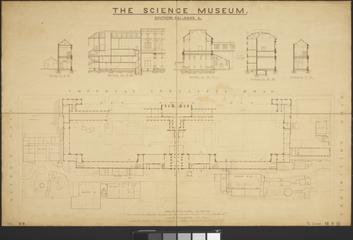
Oral history interview with Joe Wild, conducted and recorded by Robert Aitchinson in 2004, as part of the Time Tracks oral history collecting initiative. Duration: 52 minutes. Born in Shildon mid 1920s, all life in Shildon; started work at Shildon Works in 1941, fitter, aged 21 years went into Production Section, promoted after 4 years, move to Machine Shop for rest of career, retired on Works closure in 1984 [00:02:00]; work during World War 2, moved to different sections of Production Section [00:03:00]; post War, new wagons production, 32 wagons a day completed in one Shop alone, describing different wagons, Consett Steel Works wagons trains, Darlington Rolling Mills wagons; working conditions [00:08:10]; salary, first wage 27 shillings, 47pw hours worked, good working conditions; Father, a miner until 1931, Eldon Colliery closure, unemployed until 1938, depression years [00:10:10]; family background, five children in family, two left now, eldest sister’s Belgium husband story as a pilot; life before marriage, moving to new Shildon when married for 9 years, lack of houses, dislike for New Shildon, unfriendly except miners, present house 23 years, second marriage, single life [00:16:10]; meaning of works to people; closure had large effect, entitlement to 1 year's dole money, had poultry as well, limited closure effect, wife and daughter’s home baker business
[00:18:40]; 1975 celebrations, Stockton and Darlington 150th anniversary, well organised, much appreciated by people, disappointment for lack of 175 years celebration, personal views [00:20:30]; 1975 Repair Shop closure; repair work described, 300 wagons repaired per week [00:22:00]; 1960s development of high-capacity coal wagon, still operating with higher capacity [00:23:20];
Shildon works closure, JW almost 65 years old, limited chance of further work, effect on younger people and Shildon population, lots of people left town, mines had closed; drift mine story [00:25:50]; camaraderie at the Works, good relationships except with Darlington men [00:27:10]; political details of area, strong Labour area, locally Liberal/Independent [00:28:40]; drinking habits, teetotal; strong Unions at Shildon Works, becoming Union member, management fair, low wages below average, free passes, privilege tickets [00:31:30]; public transport; better then than now, bus timings were good, father was porter on the railway in 1938, was a good train service compared to now, examples of train services [00:36:30]; decline of Shildon Works, changes in working practice [00:40:50]; canteen at Shildon Works, run by local people and then franchised out, cost [00:42:20]; leisure and entertainment in Shildon, concerts during war, organisation, cinemas, views of TV viewing now [00:44:10]; reading habits, newspapers, Northern Echo reader for 70 years, decline in quality, JW considers his lack of reading has been a limiting factor [00:46:50]; education, Shildon Council School, school life, no sports involvement [00:47:50]; getting a job, to get a job at Works father needed to work there [00:48:20]; Industries history in Shildon, Fur Factory (Astraka) built on an early industrial estate (Dabble Duck), other industries [00:51:59] [end of interview]
Time Tracks, Shildon Railway Village Community Project was an initiative funded by the National Lottery Heritage Fund that encouraged members of the public to bring photographs and documents at Locomotion to form a community archive, when Locomotion museum was opened in Shildon, 2004. Over 50 oral history interviews were also recorded with members of the community. They shared their memories of Shildon as they knew it in their childhood and throughout their lives, from as early as the 1920s, as well as their work experiences in local factories and industries, including Shildon railway works.
Details
- Category:
- Corporate Archive
- Object Number:
- 2023-1049
- Materials:
- metal (unknown) and plastic (unidentified)
- type:
- minidisc